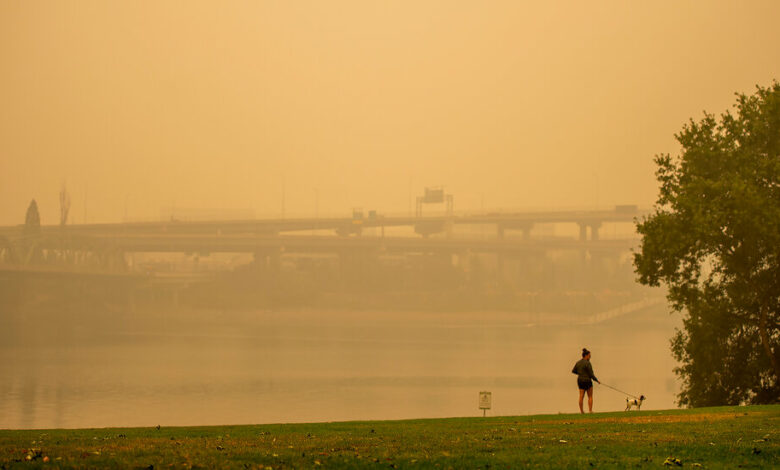How to Protect Yourself from Wildfire Smoke

When you go outside, wear a high-quality, well-fitting mask, such as an N95. A surgical mask isn’t enough to filter out the tiny, harmful particles in wildfire smoke, Dr. Stowell said. And change clothes when you get home, Dr. Galiatsatos suggested, to avoid breathing in smoke particles that can contaminate the air in your home.
Stay inside
Make sure all the windows in your home are closed tightly. Don’t burn candles or smoke indoors, as this increases indoor air pollution, says Laura Corlin, an associate professor at Tufts University School of Medicine.
Air purifiers can help filter particles from the air in your home. People with respiratory conditions such as asthma may benefit from an additional HEPA filter with the air purifier, which can remove more particles from the air.
“Know who you are and what your lungs need,” Dr. Galiatsatos said.
If you don’t have an air purifier, an air conditioner can also help, with a few caveats. If you have a window air conditioner, make sure the window seal is as tight as possible. If you have a central air conditioning system that draws air from outside, close the outside air damperor switch the system to recirculation mode, Dr. Corlin advised, so that polluted air isn’t drawn into your home.
If possible, upgrade to a higher quality filter, such as a MERV 13. This filter will trap more particles.
If you don’t have air conditioning, you can use a fan to circulate the air and turn it on high — something is better than nothing, Dr. Corlin said. Your local health department may also run cooling centers. These air-conditioned public spaces can provide relief from the heat and protection from smoke, Dr. Stowell said. Even an air-conditioned space, such as a shopping mall, can have better air quality than a home without air conditioning.




